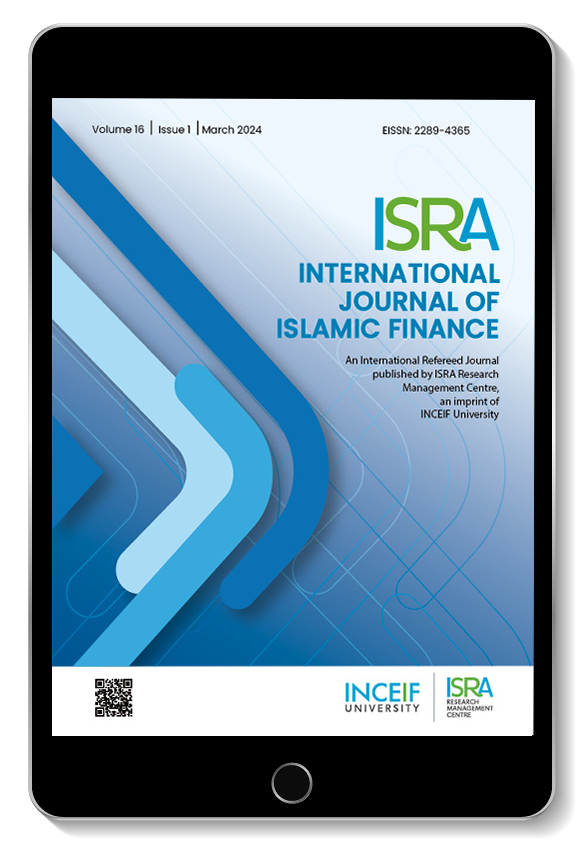Cash waqf model for micro enterprises’ human capital development
IF 1.4
Q2 BUSINESS, FINANCE
引用次数: 22
Abstract
Purpose The present paper aims to propose a viable alternative model for human capital development (HCD), termed as the integrated cash waqf micro enterprises investment (ICWME-I) model, which is expected to contribute to the development of micro enterprises in Malaysia. Design/methodology/approach This is a conceptual paper for the development of the ICWME-I model. It is purely qualitative in nature, using content analysis. It comprehensively reviews the literature related to HCD issues faced by micro enterprises and existing studies related to cash waqf (Islamic endowment) to construct the ICWME-I model. Findings The proposed ICWME-I model is specially designed for HCD of micro enterprises. It is an appropriate initiative to upgrade micro enterprises through HCD programmes by ensuring proper utilization of cash waqf funds to build modern training centres at subsidized costs with state-of-the-art facilities. The training centres would subsidize the participation fees of micro enterprises and provide them with facilities to undertake education and training programmes, as well as other kinds of activities for upgrading, improving and enhancing human capital capacity and skills of micro enterprises. The potential challenges of the ICWME-I model are also highlighted in this study. Research limitations/implications This paper attempts to construct the ICWME-I model based on an extensive review of literature related to micro enterprises, cash waqf and HCD. Among its major limitations is the fact that the ICWME-I model is not empirically validated and tested in this research. This can be carried out in future studies. Practical implications The present study could have an enormous impact on micro entrepreneurs via HCD programmes. The most important impact would be on government budgets, as this ICWME-I model is expected to generate its own funds from cash waqf for micro enterprises’ HCD. Originality/value This paper brings forward an original and viable model to develop human capital for micro enterprises development. This model involves the building of training centres using cash waqf raised from donors.微型企业人力资本开发的现金流模型
目的本文旨在提出一种可行的人力资本开发(HCD)替代模型,称为综合现金-基金-微型企业投资(ICWME-I)模型,该模型有望为马来西亚微型企业的发展做出贡献。它本质上是纯定性的,使用内容分析。它全面回顾了与微型企业面临的HCD问题相关的文献和现有的与伊斯兰捐赠基金相关的研究,以构建ICWME-I模型。发现所提出的ICWME-I模型是专门为微型企业的HCD设计的。这是一项适当的举措,通过HCD方案升级微型企业,确保适当利用waqf现金基金,以补贴成本建造具有最先进设施的现代化培训中心。培训中心将补贴微型企业的参与费,并为它们提供开展教育和培训方案以及其他类型的活动的设施,以提高、改善和加强微型企业的人力资本能力和技能。本研究还强调了ICWME-I模型的潜在挑战。研究局限性/含义本文试图在广泛回顾微型企业、现金基金和HCD相关文献的基础上构建ICWME-I模型。其主要局限性之一是ICWME-I模型在本研究中没有经过实证验证和测试。这可以在未来的研究中进行。实际意义本研究可能通过HCD计划对微型企业家产生巨大影响。最重要的影响将是对政府预算的影响,因为这种ICWME-I模型预计将从现金基金中产生自己的资金,用于微型企业的人力资本开发。这一模式包括利用从捐助者筹集的现金基金建立培训中心。
本文章由计算机程序翻译,如有差异,请以英文原文为准。
求助全文
约1分钟内获得全文
求助全文
来源期刊

ISRA International Journal of Islamic Finance
BUSINESS, FINANCE-
CiteScore
3.40
自引率
17.40%
发文量
18
审稿时长
20 weeks
期刊介绍:
It is the aspiration of the editorial committee that IJIF achieves the highest rank in quality and substance. It is thus our aim that the journal be carried in the Thompson Reuters’ ISI and Scopus databases. By ensuring high standards in articles published in Islamic finance we ensure that further innovation and research is carried out and promoted in the Islamic finance industry and academia. IJIF publishes 2 issues per annum.
 求助内容:
求助内容: 应助结果提醒方式:
应助结果提醒方式:


